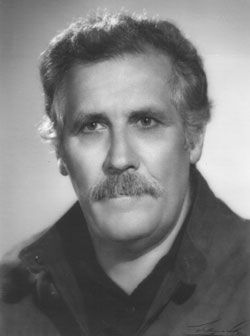Related Research Articles

The Fourth International Posadist is a Trotskyist international organisation. It was founded in 1962 by J. Posadas, who had been the leader of the Latin America Bureau of the Fourth International in the 1950s, and of the Fourth International's section in Argentina. Between their split from the International Secretariat of the Fourth International in 1962 and Posadas' death in 1981, Posadists developed a strain of communism that included several fringe ideas, which brought them into conflict with more mainstream left-wing groups.

Communist Party of Spain (international) (in Spanish: Partido Comunista de España (internacional)), was a communist political party in Spain.

The Workers' Revolutionary Party was a Trotskyist political party in Mexico. It was originally founded in 1976 by the merger of two Trotskyist groups: the International Communist League, associated with the United Secretariat of the Fourth International and the Mexican Morenists.
Anarchism as a social movement in Cuba held great influence with the working classes during the 19th and early 20th century. The movement was particularly strong following the abolition of slavery in 1886, until it was repressed first in 1925 by President Gerardo Machado, and more thoroughly by Fidel Castro's Marxist–Leninist government following the Cuban Revolution in the late 1950s. Cuban anarchism mainly took the form of anarcho-collectivism based on the works of Mikhail Bakunin and, later, anarcho-syndicalism. The Latin American labor movement, and by extension the Cuban labor movement, was at first more influenced by anarchism than Marxism.
The People's Labour Party was a short-lived political party in Cuba. It appeared in public with its programme in August 1901. The party was a continuation of the People's Party of Diego Vicente Tejera. However, it appears that Diego Vicente Tejera had no links to the People's Labour Party.
The International Socialist Group was a political organization in Cuba, formed in 1905 by émigré Spanish socialists who were followers of the Spanish Socialist Workers' Party (PSOE). In November 1906 the group merged with the Socialist Workers Party, forming the Socialist Party of the Island of Cuba.
The Socialist Party of the Island of Cuba was a political party in Cuba, formed in November 1906 through the merger of the Socialist Workers Party of Carlos Baliños and the International Socialist Group. The party published La Voz Obrera.
The Socialist Party of the Manzanillo was a political party in Manzanillo, Cuba, formed in 1906. Agustín Martín Vélez, a tobacco worker and former anarchist, was the leader of the party. The party was Marxist in its orientation and was active in leading the Federación Obrera de Manzanillo trade union movement. Some of the leaders of the party later became active in the Communist Party of Cuba.
The People's Party was a short-lived political party in Cuba. It was founded on November 7, 1900 by Diego Vicente Tejera. The People's Party sought to mobilize the working class of Cuba into political action. However the party failed to make any significant political breakthrough. Tejera took part in the Constituent Convention of 1901 as a delegate from the People's Party.
The first Bolivian Socialist Parties were established in 1913–1935.
The Workers' Party was a Bolivian left-wing-socialist political party.

The Unified Communist Party of Spain was a political party in Spain. PCEU was a pro-Soviet rival to the Eurocommunist Communist Party of Spain (PCE).
Unión General de Trabajadores (sector histórico) ('General Workers' Union (historical sector)', abbreviated UGT(H)) was a trade union centre in Spain during the Transition years. UGT(H) emerged from a split in the Unión General de Trabajadores and was linked to the Spanish Socialist Workers' Party (historic) (PSOE(H)). The split in UGT was linked to the split in PSOE after its 1973 congress in Toulouse.

The Labour Gathering Party was a political party in Argentina, led by José Penelon. It emerged from a dissident wing of the Communist Party of Argentina in the late 1920s. The party would exist for decades, mainly based in Buenos Aires, but its influence waned over the years.
The Coordinating Committee for the Refoundation of the Fourth International (CRFI) was a Trotskyist international organisation. Its name in Spanish was Coordinadora por la Refundación de la Cuarta Internacional. It was formed in 2004 at a conference in Buenos Aires called by the Movement for the Refoundation of the Fourth International. It had members in South America, Western Europe and the Middle East. The committee had nine members from Argentina, Chile, Greece, Italy, Mexico, Uruguay, Turkey, Finland and Venezuela. They included Jorge Altamira, Savas Matsas, Sungur Savran and Marco Ferrando.

Nahuel Moreno was a Trotskyist leader from Argentina. Moreno was active in the Trotskyist movement from 1942 until his death.

Virginia González Polo was a Spanish political and feminist leader, socialist, and communist.

José Cazorla Maure was a Spanish communist leader during the Spanish Civil War (1936–39). He was one of the leaders of the Unified Socialist Youth. For several months in 1936–37 he was a member of the Madrid Defense Council in charge of public order. He was ruthless in weeding out sabotage or subversion, and earned the hostility of the anarchists and Trotskyites. Later he was made governor of the province of Albacete and then of Guadalajara. He remained in Spain after the war, and was arrested and executed by firing squad.

Rafael Vidiella Franch was a trade unionist and communist politician from Catalonia. He served as a minister in the government of Catalonia during the Spanish Civil War (1936–1939).

The Unión de Impresores de Filipinas was one of the first national trade union centers in the Philippines, along with the Unión Obrera Democrática Filipina. Established in 1906, it was a national union of all workers in the printing trade intended to consolidate them into a single confederation.
References
- ↑ Alexander, Robert J. A History of Organized Labor in Cuba . Westport, Conn: Praeger, 2002. p. 21
- ↑ Busky, Donald F. Communism in History and Theory . Westport: Praeger, 2002. p. 169